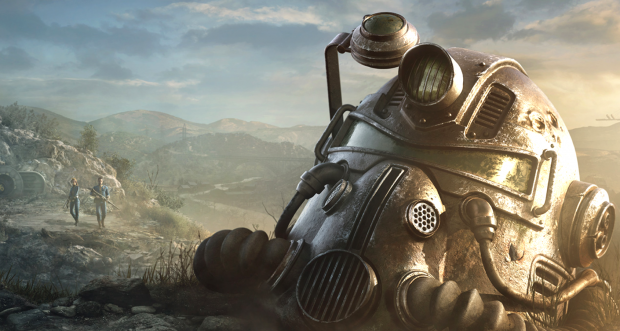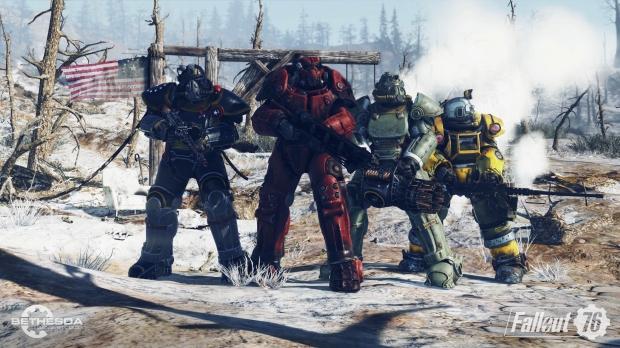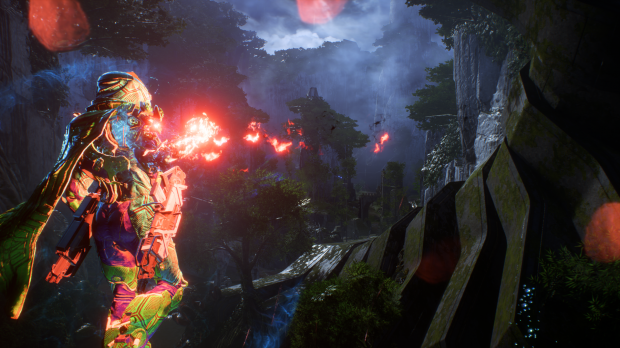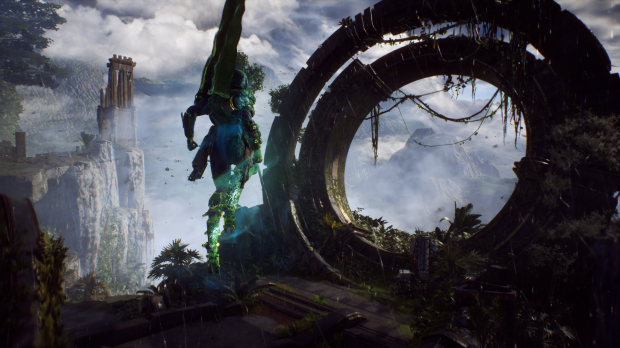Hype is always a double-edged sword. It can be used to cut through moneybags and spill cash everywhere via pre-orders and boost shares, or deliver vicious wounds to game developers and publishers. Two recent games in particular show that hype hits service games the hardest: Fallout 76 and BioWare's ambitious new IP Anthem.

Gaming hype is a very powerful tool. It excites and engages gamers across the world, creating strong buzz for a project, propelling tons of articles, videos, and threads about a project. Publishers feed off of this attention and developers use the positive energy to supercharge their work. Gamers discuss the possibilities for their favorite sequels, or what direction the new IP will take, or how the game will evolve with a new engine. But hype also builds tremendous expectations that can't ever be met, especially when the hype is built from bullshots and pre-alpha footage that simply don't represent the final game. This, as we've learned, can be very dangerous.
Both Fallout 76 and Anthem represent failed experiments who were overwhelmed by the burgeoning weight of hype. Fallout 76 was hit hardest due to Bethesda's mismanagement and misunderstanding of how live service games actually work, but BioWare also played Dr. Frankenstein with Anthem, which was once described as a potential Destiny-killer (instead, as GuerrillaDawg aptly said, it became a PS4-killer).
Fallout 76: How to kill a service game
When Bethesda teased the new Fallout game everyone lost their mind. It had only been a few years since Fallout 4. Was a new AAA RPG coming so soon? Then Kotaku's Jason Schreier said it'd be an online-only game...and players lost a lot of excitement. They were dubious and rightly so. But even still, there was a shred of hope that Bethesda could do something unique. Something different.
Fallout 76 had lost some of its hype, but not all of it, and the possibilities were kind of exciting. Would it be like Fallout 4, but with a direct path to more content like quests, story missions, and weapons and items? The E3 2018 presentations made lots of promises, including fancy visuals, an expansive world with lots to do, and offered glimpses at a meaningful experience.
I even outlined some examples to give players some hope. It'd change over time, I said, and evolve as Bethesda learned.

But alas it was all for nothing. Bethesda used Fallout 76 as an extremely avaricious live service model that's artificially elongated with way, way too much grinding. It took out NPCs and replaced them with robots. The story was lukewarm, and the world felt empty and dead. Contrary to the hype, the studio essentially used Fallout 76 is a weird experiment to monetize the GaaS engagement model by melding singleplayer and multiplayer together in some freaky Cronenberg mutation.
In a very real sense, Fallout 76 represents Bethesda trying to fit a square through a circle-shaped hole. It was (and still is) so bad that I said Fallout 76 may never be the game it should be.
The online mechanics were so bad I asked Bethesda to stop breaking its games to make more money.
In this case, hype was weight that Bethesda simply couldn't bear. Fallout 76's shaky online framework was never meant to shoulder such force. Even if hype was hit with confirmations of Fallout 76 being online-only, it still couldn't handle the mass-market appeal of the franchise's fanbase. Even now it has to fight the after effects of this weight as it tries to simply exist by updating its foundation rather than actually grow as it should.

Anthem: BioWare learns tough lessons
Anthem was hurt by hype in a different way.
The game was massively hyped by EA over the course of two years, and represented something brand new for BioWare. It'd be a big departure from the singleplayer-driven RPGs BioWare was known for. Instead it was an online-only action game that combined the story beats from games like Dragon Age and Mass Effect with the chaotic action found in games like Destiny.
Anthem would evolve over time with tons of new content, giving BioWare more freedom to craft and tailor the story over time and create a reactive, always-changing world.
"We're trying to build a fictional world that feels real and is alive and is constantly changing," BioWare's Casey Hudson said in an E3 2014 teaser.
Ever since we started covering Anthem in 2016, when it was then known as Project Dylan, we had high hopes for the project. The things BioWare and EA said about it made us quite hyped and amped. We knew it'd have microtransactions, and that it'd have live service hooks to keep users playing for as long as possible.
But the idea of a BioWare game with an expansive canvas and online play? It's different, but it could've been good.
But instead of delivering on its promises of an exotic new experience, Anthem missed its target. Lots of content shown in the E3 2017 teaser wasn't in the final game. There aren't any elemental weapons, the environmental effects are different, and the setup has changed.
BioWare's core dev team proved it doesn't necessarily understand specifics of RPGs that're conceptualized via online-only games (despite having curated a Star Wars MMO for years). The game launched with intensely grindy loot, tons of balancing issues, a lackluster storyline, and very, very light RPG mechanics.
Anthem felt unfinished (and still feels that way to this day). There's so many QoL issues and setbacks that push players away, making the game feel like less of an actual interactive experience and more of a time sink. Like Fallout 76, Anthem was pressing the engagement button way too hard and trying to force players to stay in the game.

But Anthem isn't all bad. In fact, it's problems are made more apparent by the things it does well. BioWare has crafted one of the most beautiful and compelling sci-fantasy worlds I've ever seen in a game. The lore is pretty good even if the story is lackluster, and the combat...it's amazing.
Anthem's raw combat is absolutely fun, and the Iron Man-like flying is incredible. But there's so many small roadblocks getting in the way, like loading screens, not being able to easily swap out loadouts, and the worst of all: feeling like you're not actually progressing.
For a while we thought Anthem would be EA's unique answer to Destiny. But as it stands now, Anthem will never ever come close to beating Destiny simply because it lacks so many QoL balances. Destiny might not be the best game, but it certainly is fun and intuitive, and doesn't actively punish players with intrusive menus, the annoying Forge mechanics, and withholding key information about builds.
Publishers, take note: Fallout 76 and Anthem serve as warning signs to anyone who try to push things where they don't belong. Don't infuse live service elements into your projects just because, and don't have studios who make singleplayer RPGs responsible for huge, multi-year online-only live games. It's a recipe for disaster and will ultimately harm your brands in the long run.
And most importantly, don't hype things you know you can't deliver.

